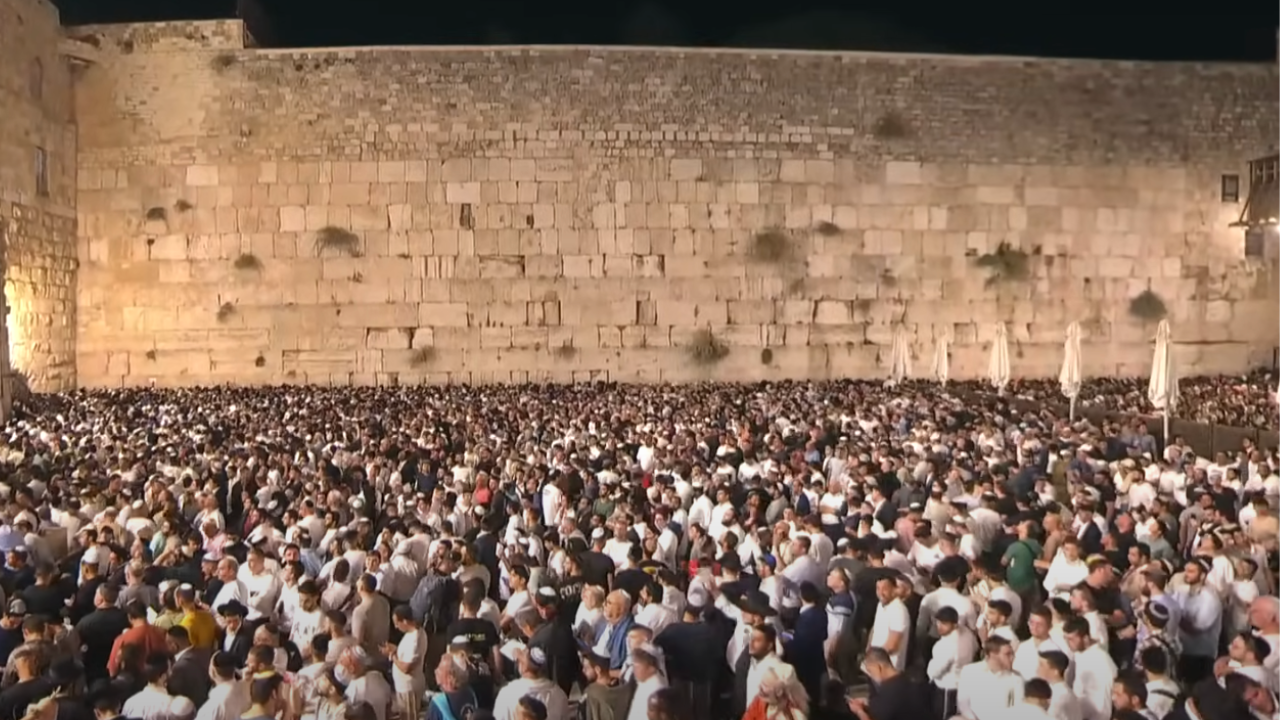Yedid Hashem: Binyamin’s Unique Zechut
The conflict between Yosef and his brothers is a jarring and painful chapter in our history. In many ways, we still suffer from the consequences of mechirat Yosef to this day. Rav Elchanan Wasserman tz’l is known to have suggested that the bloodied-coat deception employed by the brothers was a spiritual antecedent for the vicious blood libels spread against the Jewish people throughout history.
The tension between Yosef and his brothers transcends mundane and trivial sibling rivalry. A close read of Bereishit reveals a simple, yet endlessly anguishing explanation for the brothers’ behavior. The Shevatim saw that Yosef, son of the favored wife of Yaakov, was himself favored by their father. Yosef then begins to dream about them; he dreams of economic and celestial dominance, clearly representing their eventual submission as they bow before him.
The Shevatim were not stupid. They knew what happened to their great-uncle Yishmael, son of the secondary wife of Avraham. כי ביצחק יקרא לך זרע. Yitzchak carried on the legacy of Avraham and merited the awesome responsibility of God’s eternal covenant. Yishmael was cast away. They also are well aware of the fate of Uncle Eisav, the brother who was also thrown aside and found unworthy of carrying on the legacy of Avraham. But it was obvious to the Shevatim why Yishmael and Eisav were unworthy of being part of the eternal covenant with the Ribbono Shel Olam.
The sons of Leah, Bilhah, and Zilpah knew that they were not guilty of the same mistakes as their uncles. They were worthy of being part of Bnei Yisrael. But along comes the dreamer, son of the favored wife of Yaakov, seemingly prophesizing of them eventually joining the ranks of those ejected out of the brit Avraham. Yosef’s dreams are awfully reminiscent of the beracha that Yaakov received from Yitzchak, “הוה גביר לאחיך וישתחוו לך בני אמך, you will be exalted over your brother, and the sons of your mother will bow to you.” Yosef also dreams of his brothers bowing to him, ותשתחוין לאלמתי.
The brothers are terrified of losing the only thing they cherish; they fear being broken off from the eternity of Yisrael. In their desperation to maintain their connection to the Rock of Israel and the Land of their forefathers, they tragically try to remove the problem by selling Yosef away.
This sale created a deep spiritual rift that ironically disqualified them from an essential role for the Jewish people. The Midrash (Bereishit Rabbah Vayechi 99:1) describes that when Shlomo HaMelech made known his intention to build the temple, the various tribes rushed forth and begged for the opportunity to host the House of Hashem. “Let it be built within my borders!” HaKadosh Baruch Hu responds, “כולכים שבטים כולכים צדיקים, you are all righteous…but you were all partners in the sale of Yosef.” No matter how righteous, the mystical breakdown between the brothers, between Leah and Rachel, made the Temple’s construction impossible. After all, an essential role of Yerushalayim and the Makom HaMikdash is the capacity to unite all
of Klal Yisrael into a seamless organic unit. Those who tragically betrayed a brother to the land of Mitzrayim cannot host such a place.
However, there is one other shevet that never partook in the mutual distrust and betrayal represented by mechirat Yosef. While Binyamin was also a son of Rachel, he never expressed future dominance over the brothers. Even as his father bestows him with unique favor, the other brothers also respond in kind with extra devotion to him. Binyamin was uniquely situated to be the shevet that could host the Makom HaMikdash and bind together all of Klal Yisrael. His ancestral portion was naturally chosen to host the Shechinah in the holiest sanctum of Jerusalem.
As we discussed last week, the Makom HaMikdash and its sanctity are particularly effective for showing every Jew, and Shevet, that they are an essential piece of the Rock of Yisrael. How befitting that Binyamin, who never caused anyone to doubt their place among the שבטי י-ה, should merit to possess it.
Hundreds of years later, Binyamin again proved his impartiality in the rivalry between the brothers, reaffirming his right to the choiciest portion of Jerusalem. When Yerovam ben Nevat rebels against Rechavam ben Shlomo and is crowned as king in Shechem, ten tribes follow this descendant of Ephraim as he split the northern kingdom away from Shevet Yehudah and Jerusalem. Only Binyamin remains with Shevet Yehudah. How ironic: when Yehudah advised selling Yosef away, all of the brothers except for Binaymin obliged and followed him. Now, when Yosef advises splitting away from Yehudah, all of the brothers follow, except for Binyamin.
May we merit to speedily witness the Shechinah rest in the portion of Binyamin again.



